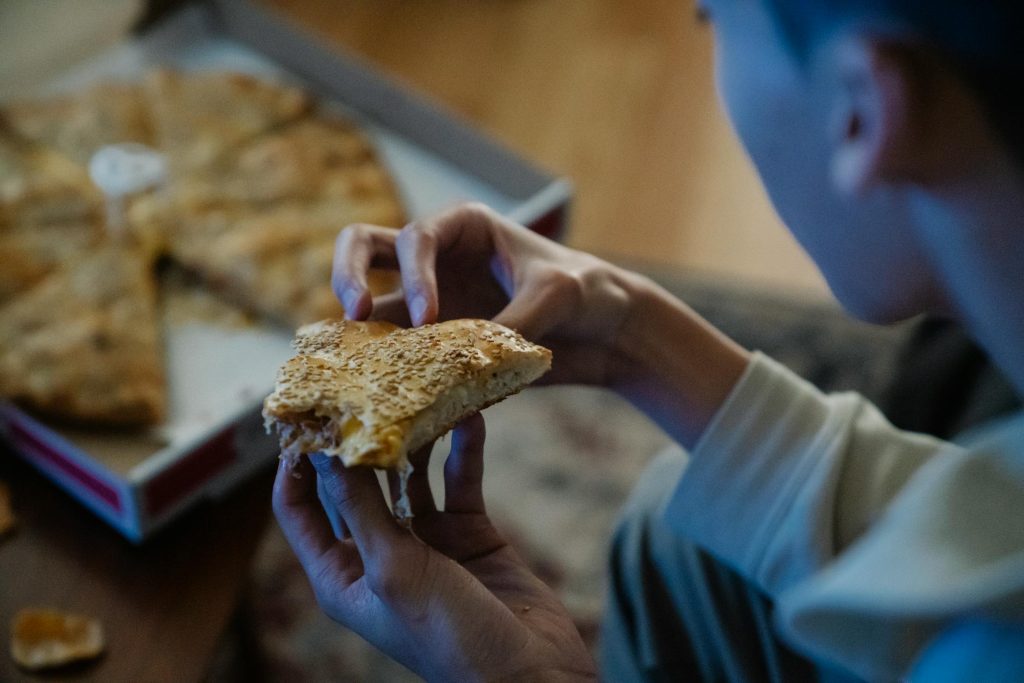We live in a society that values productivity and constant performance. Being busy, accepting invitations and commitments, and being “helpful” are often seen as signs of success and competence. However, this constant drive to please everyone and meet every demand comes at a high cost: emotional overload. Learning to say “no” without guilt is one of the most important steps toward protecting your mental health and ensuring a more balanced and healthy life.
In this article, we will explore why saying “no” is so difficult, how taking on too many commitments can affect your emotional health, and most importantly, how setting healthy boundaries can transform your life for the better.
???? Why Is It So Hard to Say “No”?

Saying “no” seems simple in theory, but in practice, it’s one of the hardest things to do. The fear of disappointing others, the desire to be accepted, and the fear of conflict make many people say “yes” when they really want to say “no.”
1. Fear of Rejection
The fear of rejection is often rooted in childhood experiences or relationships where acceptance was conditional. When you say “no,” you may feel like you are putting your connection with the other person at risk — even if, rationally, you know that shouldn’t be the case.
2. Guilt Over Letting Someone Down
The idea that saying “no” is selfish or insensitive is reinforced by a culture that values personal sacrifice for the sake of the group. Guilt arises because you believe you are failing the other person, even though saying “yes” would mean compromising your own well-being.
3. Desire to Be Accepted and Loved
From a young age, we are taught that being helpful and accommodating is a desirable trait. Accepting every request may seem like a way to guarantee that you will be loved and valued — but this can lead you to neglect your own needs.
????️ The Emotional Burden of Saying “Yes” Too Often
Constantly agreeing to external demands without considering your own limits can cause an accumulation of stress that directly affects your mental and physical health.
???? 1. Emotional Exhaustion
When you constantly say “yes,” your energy is quickly drained. Your brain and body need rest to recover, and without it, you enter a state of constant fatigue, which impairs your ability to concentrate and make decisions.
???? 2. Anxiety and Chronic Stress
An overload of commitments and responsibilities activates your nervous system, triggering stress responses. Your body remains in a constant state of alert, which can lead to symptoms such as insomnia, irritability, muscle pain, and even digestive problems.
???? 3. Resentment and Frustration
When you agree to something you didn’t want to do, it creates a cycle of frustration and resentment. You may begin to feel used or disrespected, especially when you realize that your own desires are being set aside to meet other people’s expectations.
???? 4. Loss of Identity
When you shape your actions to please others, you start to lose your sense of self. Your choices no longer reflect your true desires and values, which can lead to emotional emptiness and a sense of lack of purpose.
???? Setting Boundaries Is an Act of Self-Care
Learning to say “no” without guilt is an act of self-care and self-compassion. Setting healthy boundaries is not an act of selfishness — it’s a way of protecting yourself so you can offer your best without becoming emotionally drained.
???? 1. Saying “No” Is an Act of Self-Respect
When you set boundaries and communicate your needs, you are showing respect for yourself. This strengthens your self-esteem and helps you assert yourself more confidently in other areas of life.
???? 2. Preserving Your Energy for What Really Matters
You have a limited amount of mental and emotional energy. If you spend it saying “yes” to everything, there will be nothing left for what truly matters — your health, meaningful relationships, and personal projects.
???? 3. Creating More Authentic Relationships
When you position yourself clearly and honestly, the people around you learn to respect your needs and boundaries. Relationships become more authentic and balanced, without the burden of obligation or false politeness.
????️ How to Say “No” Without Guilt – Practical Strategies
Learning to say “no” confidently and naturally takes time, but with practice and self-awareness, you can make this process easier and more comfortable.
1. Practice Direct and Polite Responses
You don’t need to over-explain yourself when saying “no.” Simple and direct responses are enough:
✅ “Thank you for the invitation, but I’ll have to pass this time.”
✅ “I appreciate you thinking of me, but I can’t help right now.”
✅ “I’m busy at the moment, so I won’t be able to participate.”
2. Offer an Alternative (If It Makes Sense)
If you can’t or don’t want to accept a request but still want to offer limited help, try something like this:
✅ “I can’t help with the event, but I can help organize the materials.”
✅ “I can’t make it to dinner, but I’d love to catch up over coffee another day.”
3. Don’t Over-Apologize
Saying “no” is not a mistake. Avoid phrases like “I’m sorry, but…” or “I feel bad saying this, but…”. Be firm and clear.
4. Practice Silence After Saying “No”
Often, we feel the need to fill the silence with justifications, but this weakens your position. After saying “no,” stop talking and let the other person absorb the information.
5. Remember: You’re Not Responsible for the Other Person’s Reaction
If the other person becomes upset or frustrated by your “no,” that doesn’t mean you’re wrong. Their emotions are their responsibility — your role is simply to be clear and respectful.
???? The Benefits of Learning to Say “No”
By incorporating “no” into your life in a healthy way, you will notice positive changes in several areas:
✔️ More energy and motivation for what really matters.
✔️ Greater clarity about your goals and values.
✔️ More authentic and balanced relationships.
✔️ Reduced levels of stress and anxiety.
✔️ Increased self-esteem and confidence.
❤️ Saying “No” Is an Act of Self-Love
Learning to say “no” without guilt is a process that involves self-awareness, practice, and courage. It’s not about being rude or indifferent but about honoring your own needs and limits.
When you learn to respect your own boundaries, you put yourself in a position to offer your best to the world — without exhaustion, resentment, or sacrificing your inner peace. Saying “no” is not a sign of weakness; it’s a testament to your strength and self-love.
So, next time you feel the need to say “no,” take a deep breath, smile, and say confidently: “No, thank you.”

